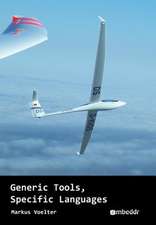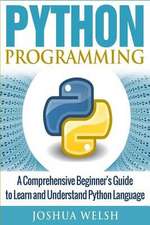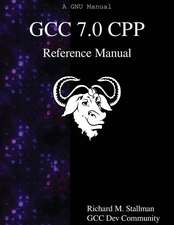Embedded Programming with C++ Cookbook: Practical recipes to help you build robust and secure embedded applications on Linux
Autor Igor Viarheichyken Limba Engleză Paperback – 17 apr 2020
Key Features
Get hands-on experience in developing a sample application for an embedded Linux-based system
Explore advanced topics such as concurrency, real-time operating system (RTOS), and C++ utilities
Learn how to test and debug your embedded applications using logs and profiling tools
Book Description
Developing applications for embedded systems may seem like a daunting task as developers face challenges related to limited memory, high power consumption, and maintaining real-time responses. This book is a collection of practical examples to explain how to develop applications for embedded boards and overcome the challenges that you may encounter while developing.
The book will start with an introduction to embedded systems and how to set up the development environment. By teaching you to build your first embedded application, the book will help you progress from the basics to more complex concepts, such as debugging, logging, and profiling. Moving ahead, you will learn how to use specialized memory and custom allocators. From here, you will delve into recipes that will teach you how to work with the C++ memory model, atomic variables, and synchronization. The book will then take you through recipes on inter-process communication, data serialization, and timers. Finally, you will cover topics such as error handling and guidelines for real-time systems and safety-critical systems.
By the end of this book, you will have become proficient in building robust and secure embedded applications with C++.
What you will learn
Get to grips with the fundamentals of an embedded system
Understand how to optimize code for the targeted hardware platforms
Explore cross-compilation, build types, and remote debugging
Discover the importance of logging for debugging and root cause analysis of failures
Uncover concepts such as interrupt service routine, memory model, and ring buffer
Recognize the need for custom memory management in embedded systems
Delve into static code analyzers and tools to improve code quality
Who this book is for
This book is for developers, electronic hardware professionals, and software and system-on-chip engineers who want to build effective embedded programs in C++. Familiarity with the C++ programming language is expected, but no previous knowledge of embedded systems is required.
Preț: 277.64 lei
Preț vechi: 347.06 lei
-20% Nou
53.12€ • 55.47$ • 43.97£
Carte tipărită la comandă
Livrare economică 04-18 aprilie
Specificații
ISBN-10: 183882104X
Pagini: 412
Dimensiuni: 191 x 235 x 23 mm
Greutate: 0.7 kg
Editura: Packt Publishing Limited
Descriere
Developing applications for embedded systems may seem like a daunting task as developers face challenges related to limited memory, high power consumption, and maintaining real-time responses. This book is a collection of practical examples to explain how to develop applications for embedded boards and overcome the challenges that you may encounter while developing.
The book will start with an introduction to embedded systems and how to set up the development environment. By teaching you to build your first embedded application, the book will help you progress from the basics to more complex concepts, such as debugging, logging, and profiling. Moving ahead, you will learn how to use specialized memory and custom allocators. From here, you will delve into recipes that will teach you how to work with the C++ memory model, atomic variables, and synchronization. The book will then take you through recipes on inter-process communication, data serialization, and timers. Finally, you will cover topics such as error handling and guidelines for real-time systems and safety-critical systems.
By the end of this book, you will have become proficient in building robust and secure embedded applications with C++.




















